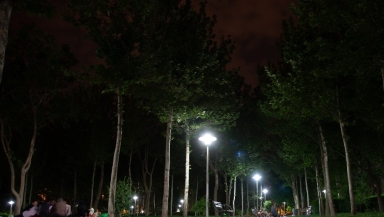
Iran's highest court recently ruled that belonging to a house church does not make Christians 'enemies of the state'.
In what could become a landmark judgment, the country's Supreme Court ruled that nine Christian converts serving five-year prison sentences for going to house-churches should not have been charged with 'acting against national security'.
But why do the Iranian authorities keep arresting Christians?
Converts from Islam to Christianity bear the brunt of religious persecution in Iran. The Iranian regime sees converts to Christianity as proof of the attempt by Western countries to undermine Islam and the Islamic regime.
Leaders and regular members of Christian convert groups have been arrested, prosecuted and received long prison sentences for 'crimes against national security'.
Iran specifically targets Christian converts but also anyone who wants to worship in the national language, Persian.
This is because the regime wants to limit the spread of Christianity, or in fact to stop its spread entirely.
It sees the best way to do this as being to allow the historically Christian groups, such as Iranians of Armenian and Assyrian descent, to continue to have their services, but to ban them from holding any services in the national language.
As a result, Persian-speaking Christians - including both converts and Armenian and Assyrian Christians who only speak Persian - now have no place where they can worship collectively.
According to Article18, which advocates for persecuted Christians in Iran, the majority of Persian-speaking churches have been forcibly closed in recent years, and only four small ones remain, and these are kept under tight surveillance by the authorities.
The Iranian authorities do not permit converts to attend the churches of the Armenian and Assyrian communities, whose rights are recognised under the country's Constitution. Moreover, these communities are themselves prohibited from holding services in Persian to further dissuade converts from attending.
This means the only option available to a Persian-speaking Christian is to worship in private homes, in what have become widely known as "house-churches". However, the Iranian regime views membership of a house-church as an "action against national security", punishable by up to five years in prison. The establishment or directing of these house-churches - also considered a "national security" offence - carries a penalty of up to ten years' imprisonment.
Open Doors is a charity which campaigns on behalf of persecuted Christians globally.













